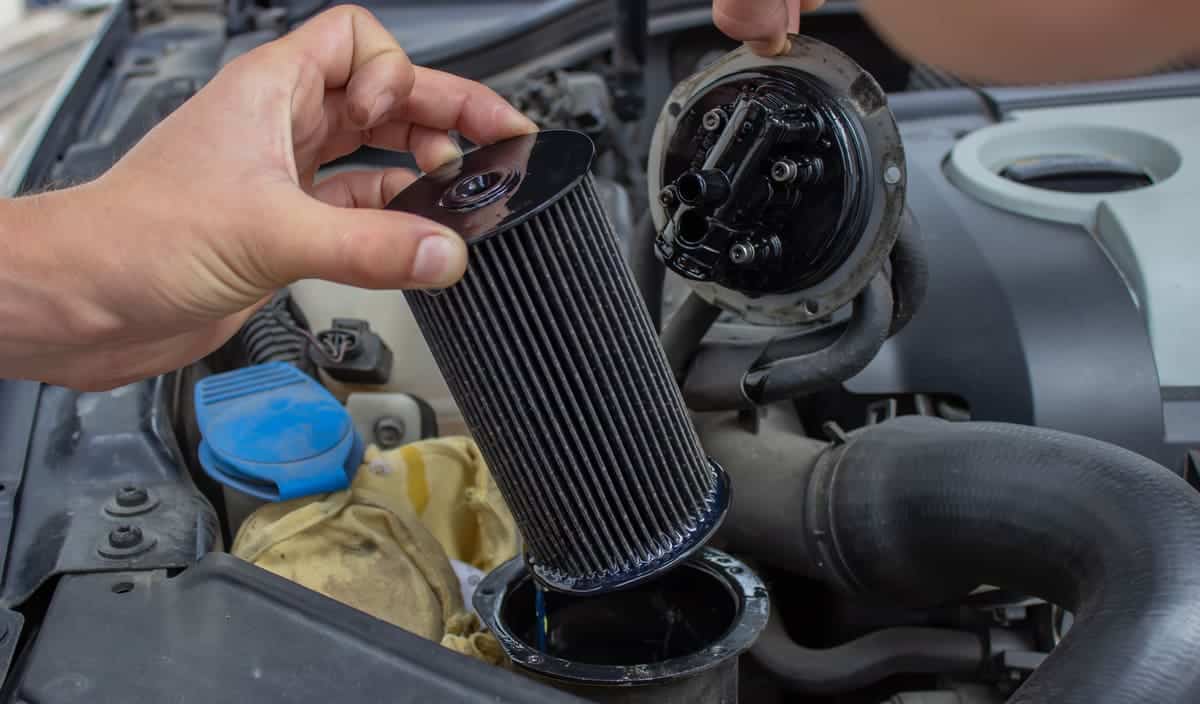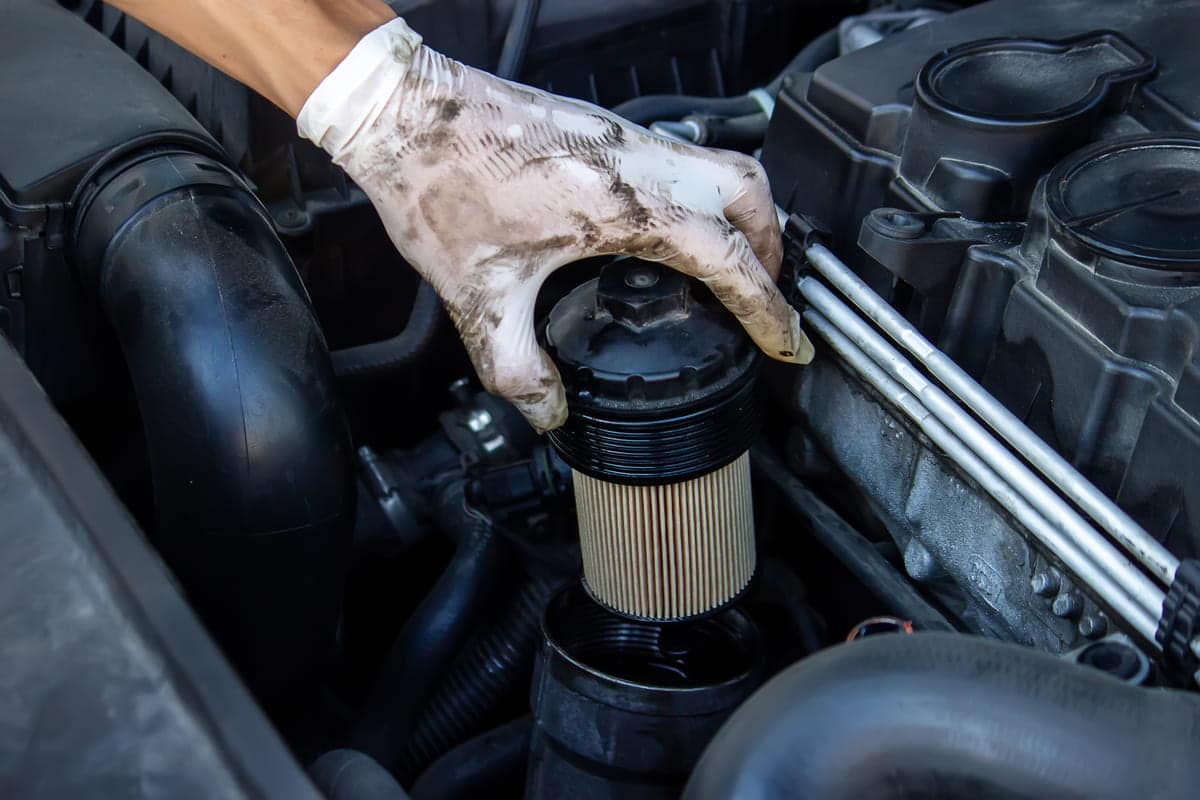The oil filter has come a long way since its invention. Knowing its history helps us appreciate its importance in maintenance. Oil filters are a must for engine cleanliness and efficiency. It catches dirt and metal particles that can degrade engine performance.
What is an Oil Filter?
An oil filter also known as a filter (oil) is a device in engines that removes dirt and debris from the engine oil. It keeps the oil clean so the engine runs smoothly. Oil filters have a metal canister with a paper filter inside.
The oil passes through the filter before it reaches the engine. This catches the bad particles. Changing the oil filter regularly is important for engine health. A clogged filter can damage the engine.
Most cars have a replaceable oil filter. Mechanics usually change it during an oil change. Keeping the oil filter clean extends engine life.
References
- Oil filter. Wikipedia. Retrieved from
History of Oil Filter:
The first oil filters appeared in the early 20th century. Ernest Sweetland invented the “Purolator” in 1923. This name means “pure oil later”. Early cars didn’t have oil filters. People had to change the oil often.
In the 1940s full-flow oil filters became common. These filters cleaned all the oil before it reached the engine. This innovation made engines last longer and run better.
By the 1950s most cars had oil filters as standard equipment. The technology improved. New materials and designs made oil filters more efficient and durable.
Today oil filters are a must for engine health. It keeps engines clean and running smoothly.
References
- Oil filter: History. Wikipedia. Retrieved from
What are the Different Types of Oil Filters?
There are several types of oil filters, each for a specific purpose. Knowing these types helps in choosing the right filter for your vehicle. Here are the main types and their details:
- Full-Flow Oil Filters: These filters clean all the oil before it reaches the engine. They are common in most modern cars. Full-flow filters get clean oil to the engine fast.
- Secondary Oil Filters: Also known as bypass filters, they clean a small portion of the oil at a time. This type provides extra cleaning. It catches smaller particles that full-flow filters might miss.
- Cartridge Oil Filters: These filters have a replaceable element inside a metal casing. Mechanics can easily change the filter element. Cartridge filters are eco-friendly because you only replace the filter element.
- Spin-On Oil Filters: These filters are one piece. You replace the whole unit during an oil change. Spin-on filters are easy to install and used in many vehicles.
- Magnetic Oil Filters: These filters use magnets to catch and hold metal particles from the oil. It provides an extra layer of protection to the engine. Magnetic filters are often used with other types of filters.
References
- Types of Oil Filters. Testbook. Retrieved from
- Different Types of Oil Filters for Trucks and Commercial Vehicles. TGP India. Retrieved from

How Does an Oil Filter Work?
Here’s a step-by-step process of how an oil filter works:
- Oil Enters the Filter: The engine oil pump pushes dirty oil into the filter through small holes around the filter’s base.
- Oil Passes Through the Filter Media: Inside the filter the oil flows through a special paper or synthetic material. This material catches dirt, metal particles, and other impurities.
- Clean Oil Exits the Filter: After passing through the filter media the clean oil flows out through a central hole. The engine gets this filtered oil for lubrication.
- Bypass Valve Opens if Needed: If the filter is clogged or the oil is too thick, a bypass valve allows oil to flow around the filter. This ensures the engine gets oil even if it’s not fully clean.
- Anti-Drain Back Valve Prevents Emptying: Some filters have anti-drain back valves. This valve keeps oil in the filter when the engine is off, prevents dry starts, and ensures immediate lubrication when the engine starts again.
- Replace Regularly: Over time the filter collects more dirt and becomes less effective. Replace regularly keep the engine clean and running well.
Knowing how an oil filter works helps in engine maintenance.
References
- How an Oil Filter Works. Mobil. Retrieved from
- Oil filter. Wikipedia. Retrieved from
What is the Function of Oil Filter?
Here are the main purposes of an oil filter:
- Trap Contaminants: The oil filter catches harmful particles like dirt and metal shavings. This keeps the engine oil clean and protects engine parts from wear and tear.
- Proper Lubrication: Clean oil reaches the engine components, reduces friction, and prevents overheating. This makes the engine run efficiently and last longer.
- Engine Components Protection: By removing impurities the oil filter prevents damage to engine parts like pistons and bearings. This reduces repair costs.
- Oil Flow Support: The filter ensures oil flows smoothly through the engine. A good filter maintains the right pressure and flow rate for proper engine performance.
- Oil Life Extension: Filtering out contaminants extends the life of the engine oil. Means fewer oil changes and overall engine health.
Knowing these functions means regular oil filter maintenance for a long-lasting engine.
References
- Oil Filter in Cars. Go Digit. Retrieved from
How to Choose the Right Oil Filter?
Choosing the right oil filter is important for your engine. Here are the steps to follow:
- Check Your Owner’s Manual: Always start by reading your car’s owner’s manual. It will list the recommended oil filter type and specs.
- Know Your Vehicle’s Make and Model: Different cars need different filters. Make sure you know your vehicle’s make, model and year to find the right one.
- Filter Type: Decide if you need full-flow, secondary, cartridge, spin-on or magnetic filter. Each has its purpose and benefits.
- Filter Size: Make sure the filter fits your engine. Using the wrong size filter can cause leaks or improper filtration.
- Filter Efficiency: Some filters catch more particles than others. Look for filters with high efficiency rating to catch more contaminants.
- Your Driving Conditions: If you drive in dusty area or have long commute, you might need higher capacity filter that lasts longer.
- Brands: Some brands are better than others. Research and choose a brand known for durability and performance.
- Ask a Pro: If unsure, ask a mechanic or auto parts store for advice. They can help you choose the right filter for your .
Follow these and your engine is protected and running well.
References
- How to Choose an Oil Filter. Machinery Lubrication. Retrieved from https://www.machinerylubrication.com/Read/30697/choose-oil-filter


